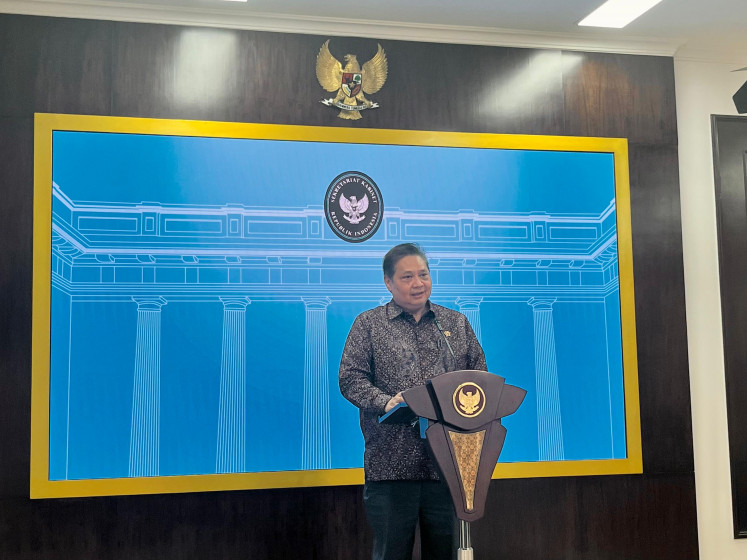Chinese currency use will impact Indonesia's trade balance
Sasmito Hadi Wibowo
Change text size
Gift Premium Articles
to Anyone
 Sasmito Hadi Wibowo. (Antara/Yudhi Mahatma) (Antara/Yudhi Mahatma)
Sasmito Hadi Wibowo. (Antara/Yudhi Mahatma) (Antara/Yudhi Mahatma)
Sasmito Hadi Wibowo. (Antara/Yudhi Mahatma)
Indonesia's use of the Chinese currency renmimbi for trade activity with China will worsen the country's trade balance, since China is still the largest importer of goods into Indonesia, accounting for 24.34 percent of total national imports.
Central Statistics Agency (BPS) deputy head of distribution and statistics Sasmito Hadi Wibowo said the weakening of the Chinese renminbi (RMB) had caused products from China to become cheaper, possibly affecting Indonesia's imports.
"The cheaper goods from China are, the happier we will be. The problem is, it will be difficult for us to manage our trade balance with China since its products are cheaper. Moreover, if the rupiah strengthened, Chinese products would become cheaper still," said Sasmita in a press conference in Jakarta on Monday.
To prevent this from happening, he said, Indonesia must boost its non-traditional exports to China, such as creative products and value-added goods.
BPS data revealed on Monday that Indonesia's imports from China amounted to US$23.82 billion from January to October this year ' a 64.39 percent increase on the same period last year.
Japan is the second-largest exporter to Indonesia, with an 11.56 percent market share. In January to October, Indonesia's imports from Japan amounted to $11.31 billion. Singapore is the country's third-largest supplier, exporting goods to Indonesia worth $7.31 billion in January-October.
The BPS data further revealed that in October 2015 alone, Indonesia's imports value fell 4.27 percent compared to the previous month, to $11.07 billion. The volume of the country's imports also decreased by 6.32 percent.
Meanwhile, Indonesia's exports amounted to $12.08 billion in October, down 4 percent from the previous month. The volume of exports increased, however, to 4.38 percent. Suryamin said the decline in exports was due to the lack of improvement in export commodity prices.
Indonesia has secured an agreement with China for the use of the renmimbi instead of US dollars for its trading with China from next year in a bid to save foreign exchange reserves and reduce dependency on the dollar.
The two governments need only to settle technical aspects before implementing the agreement, including working out the arrangements at the business level between traders and banks of the two countries. (ebf)(+)









